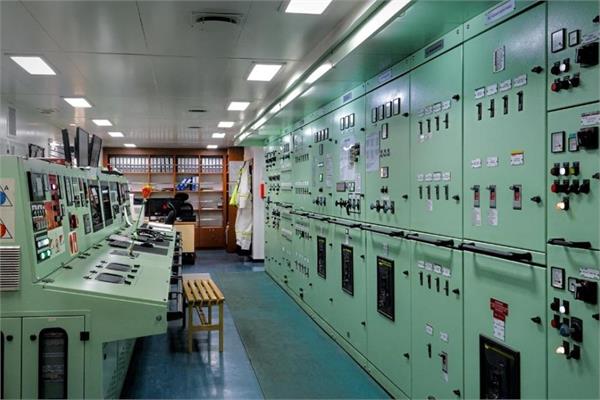
VpCI® Emitters from Cortec® offer an effective solution to protect engine room controls from corrosion and prevent the failures that can arise from it.
Marine control rooms are air-conditioned to protect electrical components and electronics from overheating. While the cool temperatures help slow corrosion, they do not fully prevent it. These control rooms are often connected to hot, humid engine rooms that pull in ocean air for cooling and ventilation. When operators move between the engine room and control room, the warm, moist air can clash with the cooler environment, causing condensation on metal surfaces. This moisture, combined with the high salt content in the marine air, significantly increases the risk of corrosion.
Installing a dehumidification system can help reduce corrosion, but there are several other effective methods to mitigate it, even without humidity control. Indeed, one of the simplest and most efficient solutions is the installation of Cortec’s VpCI® Emitters in electronic and electrical enclosures. These Emitters release Vapor phase Corrosion Inhibitors, which diffuse through breathable membranes, filling the enclosure with corrosion-blocking vapours. The vapor molecules naturally form a protective molecular layer on metal surfaces, such as wires and contacts, without disrupting their functionality.
- The VpCI®-105 Emitter protects a space of 5 cubic feet (0.14 m³) for two years.
- The VpCI®-111 Emitter provides the same level of protection for an 11 cubic feet (0.31 m³) area.
- The VpCI®-308 Pouch offers protection for larger spaces of up to 35 cubic feet (1 m³).
So, to further enhance protection against corrosion in areas that are exposed to the elements, additional solutions can be implemented. For ventilated or non-enclosed areas, ElectriCorr™ VpCI®-239, a light protective film, can be sprayed directly onto metal surfaces. This versatile coating can be applied throughout the ship, providing corrosion protection wherever electrical or electronic devices are located.